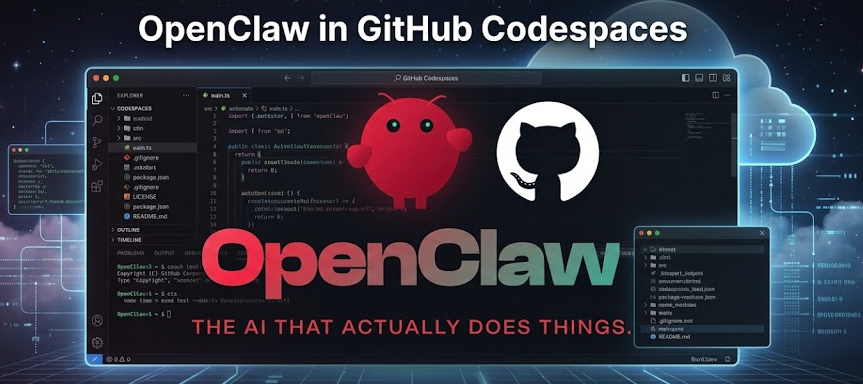THESIS Agent is an open-source AI Intelligent Body tool hosted on GitHub designed to help users complete academic papers more efficiently. It alleviates tedious work in academic research by automating the processing of literature, analyzing data and generating content. The project is based on an advanced language model, combined with multi-intelligent body collaboration technology, providing full process support from documentation to data visualization.THESIS Agent is suitable for students, researchers, and academics, and the code is open to allow users to customize the functionality according to their needs. The project has detailed documentation and an active community, which is suitable for users with a certain technical foundation to get started quickly.
Function List
- Literature organization and analysis: Automatically extract key information from the paper and generate an abstract or keywords.
- data visualization: Generate charts based on input data, such as bar charts, line graphs, etc.
- automated writing: Assist in generating essay paragraphs, introduction or conclusion, reducing manual writing time.
- Multi-Intelligence Collaboration: Multiple AI intelligences work together to break down complex tasks and execute them efficiently.
- Code generation and debugging: Automatically generate code snippets and support debugging to optimize results.
- tool integration: Support connectivity to external tools (e.g., academic databases) to enhance data processing capabilities.
Using Help
Installation process
To use THESIS Agent, you first need to clone your GitHub repository and configure your runtime environment. Here are the detailed installation steps:
- clone warehouse:
Run the following command in the terminal to clone the project locally:git clone https://github.com/THESIS-AGENT/thesis-agent-demo.git cd thesis-agent-demo - Installation of dependencies:
The project depends on Python 3.11 and related libraries. A virtual environment is recommended to avoid conflicts:python -m venv venv source venv/bin/activate # Windows 用户运行: venv\Scripts\activate pip install -r requirements.txt - Configuring Environment Variables:
The project requires an API key (e.g. OpenAI or another language model). In the project root directory, create the.envfile, add the following:OPENAI_API_KEY=your_openai_api_key ANTHROPIC_API_KEY=your_anthropic_api_keyYou need to get the key from the appropriate platform and make sure that the internet connection is stable.
- Installation of Browser Tools:
Some features require Playwright for web interaction. Run the following command to install it:pip install playwright playwright install chromium --with-deps - running example:
Once the installation is complete, run the sample script to verify the environment configuration:python examples/run_demo.pySample scripts will demonstrate the basic functionality of literature analysis and data visualization.
Functional operation flow
Literature organization and analysis
One of the core features of THESIS Agent is the automated processing of scholarly literature. Users can initiate the analysis by uploading a PDF file or entering the URL of a paper. The procedure is described below:
- In the project directory, find the
scripts/analyze_literature.pyScript. - Modify the input parameters in the script, for example:
input_file = "path/to/your/paper.pdf" output_format = "summary" # 可选:keywords, abstract - Run the script:
python scripts/analyze_literature.py - The output is saved in a specified folder and contains an abstract, keywords or citation analysis. The results are generated in Markdown format for easy insertion directly into the paper.
data visualization
THESIS Agent supports the generation of graphs based on input data, which is suitable for displaying experimental results or statistical data. The operation flow is as follows:
- Prepare the data file (e.g., CSV format), making sure to include column names and values. Example:
Year,Value 2020,100 2021,120 2022,150 - 在
scripts/visualize_data.pySpecify the file path and chart type in thedata_file = "data/sample.csv" chart_type = "bar" # 可选:line, pie, scatter - Run the script:
python scripts/visualize_data.py - The output is an interactive chart, saved in the
output/charts/Catalog with HTML viewing support.
automated writing
The automated writing function generates a draft of the introduction, conclusion or paragraphs of the paper. The procedure is described below:
- compiler
scripts/write_content.py, set writing tasks:task = "generate_introduction" topic = "AI in academic research" word_count = 200 - Run the script:
python scripts/write_content.py - The output is a Markdown file with content optimized for language modeling and conforming to academic writing specifications. It can be further edited by the user to meet specific needs.
Multi-Intelligence Collaboration
THESIS Agent uses a multi-intelligentsia framework to decompose complex tasks. For example, generating a complete paper may involve literature analysis, intelligence collaboration, and content generation. The user simply runs the main script:
python main.py --task "write_full_paper" --topic "Machine Learning Trends"
The system automatically assigns tasks to different intelligences to generate the final document.
tool integration
Users can use the configuration file config/tools.yaml Add external tools (e.g., Academic Database API). Example configuration:
tools:
- name: PubMed
api_key: your_pubmed_api_key
endpoint: https://api.pubmed.gov
Once run, the system automatically retrieves relevant literature from PubMed and integrates it into the analysis.
caveat
- Ensure a stable internet connection, some features require access to an online API.
- Check that the Python version and dependent libraries are installed correctly to avoid runtime errors.
- The project documentation is located at
docs/Catalog, detailing advanced features and customization methods.
application scenario
- Academic paper writing
Graduate students or academics use THESIS Agent to organize literature, extract key information, and generate drafts to save time and increase efficiency when writing a dissertation. - Data Analysis and Presentation
After the experiment, the researchers use the tools to transform the data into intuitive graphs for papers or academic reports to enhance the visualization of the results. - Interdisciplinary research support
Research projects involving multi-disciplinary knowledge utilize multi-intelligent body collaboration features to quickly integrate literature and data from different disciplines. - Teaching aids
Teachers use THESIS Agent to automatically generate course-related references or syllabi, reducing the stress of class preparation.
QA
- What language models does THESIS Agent support?
The project supports language models from OpenAI, Anthropic and Google. Users can specify the model in a configuration file, such as GPT-4 or Claude-3.7. - Is programming experience required?
Basic Python knowledge is required to install and run the script. However, the documentation is detailed and beginners can follow the steps. - Can it be used offline?
Some features (e.g., local model Qwen) are supported for offline operation, but literature retrieval and API calls require internet access. - How do I contribute code?
Users can submit Pull Requests through GitHub.CONTRIBUTING.mddocument for a guide to contributing.


































